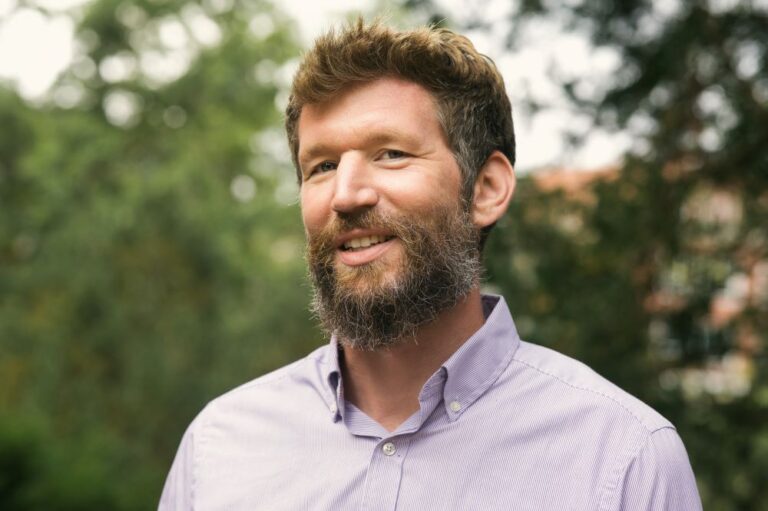By Christopher P. Long on February 5, 2023, on cplong.org
Thirty years ago, Parker Palmer wrote a new preface for the paperback edition of his book, To Know as We are Known: Education as a Spiritual Journey.1 Reporting there on his experience traveling the country to explore the issues raised by the book, he writes:
Everywhere I go, I meet faculty who feel disconnected from their colleagues, from their students, from their own hearts.2
Thirty years later, that sense of disconnection has calcified into alienation.
Personal and Institutional Alienation
The processes and practices that shape our academic lives are badly out of joint with the purposes that give our lives meaning.
Palmer puts it this way:
Most of us go into teaching not for fame or fortune but because of a passion to connect. We feel deep kinship with some subject; we want to bring students into that relationship, to link them with the knowledge that is so life-giving to us; we want to work in community with colleagues who share our values and our vocation. But when institutional conditions create more combat than community, when the life of the mind alienates more than it connects, the heart goes out of things, and there is little left to sustain us.3
It’s not just that institutional conditions have an alienating effect on the communities that give them life, but our institutions themselves are disconnected from the mission they profess to advance. As we put it in the HuMetricsHSS white paper:
The values that institutions of higher education profess to care most deeply about — articulated through university mission statements, promotional materials, and talking points — are often not the values enacted in the policies and practices that shape academic life. This disparity has led to a growing sense of alienation among faculty who entered higher education with a deep commitment to certain core values, values that are themselves very often articulated in the founding documents of institutions of higher education.4
Practices of Wholeness
Palmer’s book looks to spiritual traditions for a path forward in the face of such pervasive personal and institutional alienation. He writes:
In the midst of such pain, the spiritual traditions offer hope that is hard to find elsewhere, for all of them are ultimately concerned with getting us reconnected. These traditions build on the great truth that beneath the broken surface of our lives there remains — in the words of Thomas Merton — “a hidden wholeness.” The hope of every wisdom tradition is to recall us to that wholeness in the midst of our torn world, to reweave us into the community that is so threadbare today.5
To cultivate the wholeness to which Palmer points requires discipline and intentional practice. To reweave ourselves into community, reconnect ourselves with our purpose, and realign university values with institutional practice, we need to create structures and cultivate habits that reinforce the work that gives our personal and institutional lives meaning.
Authentic Spirituality
In this effort, it is helpful to have examples. I am grateful to work with imaginative colleagues who have managed to create a few. The appointment of Morgan Shipley as the inaugural Foglio Chair of Spirituality is a tangible effort to integrate what Palmer called “authentic spirituality” into the life of the University. “Authentic spirituality,” writes Palmer,
wants to open us to truth—whatever truth may be, wherever truth may take us. Such a spirituality does not dictate where we must go, but trusts that any path walked with integrity will take us to a place of knowledge. Such a spirituality encourages us to welcome diversity and conflict, to tolerate ambiguity, and to embrace paradox.6
This fall, a trusted path led us to a place of wholeness where we celebrated the Ascension of the new Department of African American and African Studies. This event marked the opening not only of a new Department, but also of new possibilities for deepening our connections with one another and with the reciprocal, community engaged work our torn world needs most urgently.
At the heart of these efforts to put the heart back into things beats the Charting Pathways of Intellectual Leadership initiative, a framework and a process designed to elevate the quality of teaching, research, and engagement by integrating practices of wholeness into the life of the university. We have tried to capture something of the spirit of this initiative in the video below.
Beneath the din of anxiety that animates our public conversations about the future of education, concrete steps are being taken to reconnect higher education with the “hidden wholeness” that gives it life and purpose and transformative power.
Notes
- Palmer, Parker J. To Know as We Are Known: Education as a Spiritual Journey. Reprint edition. San Francisco: HarperOne, 1993. I am grateful to the Marginalian for pointing me to Palmer’s work.
- Ibid., x.
- Ibid.
- The HuMetricsHSS Team, Nicky Agate, Christopher P. Long, Bonnie Russell, Rebecca Kennison, Penelope Weber, Simone Sacchi, Jason Rhody, and Bonnie Thornton Dill. “Walking the Talk: Toward a Values-Aligned Academy,” February 17, 2022. https://hcommons.org/deposits/item/hc:44631/. The paper is available on Manifold as well.
- To Know as We are Known, x.
- To Know as We are Known, xi, emphasis added.


